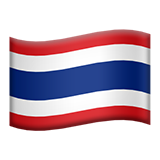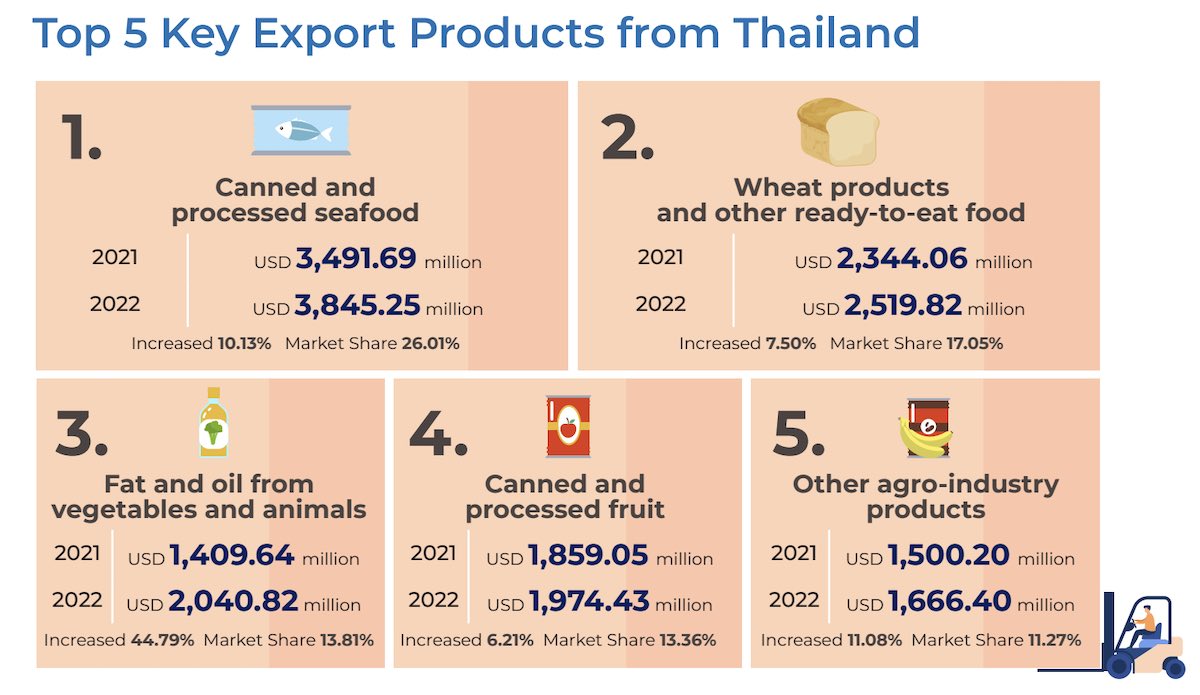 CANNED FOOD PRODUCTION IN THAILAND
CANNED FOOD PRODUCTION IN THAILAND
The production of canned food in Thailand is a major industry with significant global relevance, particularly in seafood. Thailand is one of the world’s largest exporters of canned food, renowned for its efficiency, innovation, and adherence to international food safety standards. Below is an overview of canned food production in Thailand:
Overview of the Industry
1. Economic Importance:
- The canned food industry plays a vital role in Thailand’s economy, contributing significantly to exports and employment.
- Thailand is a global leader in canned seafood production, particularly canned tuna, and is often referred to as the "kitchen of the world."
- The industry is supported by abundant natural resources, a skilled workforce, and well-established supply chains.
2. Key Products:
- Canned Seafood: Thailand is the world's largest producer and exporter of canned tuna. Other seafood products include sardines, mackerel, and crab.
- Canned Fruits: Thailand is renowned for canned tropical fruits such as pineapple, mango, rambutan, lychee, and longan.
- Canned Vegetables: Bamboo shoots, baby corn, and mixed vegetables are key exports.
- Canned Coconut Milk: Thailand is a leading producer of coconut milk and coconut-based canned products.
- Ready Meals: Thai cuisine, such as green curry, massaman curry, and tom yum soup, is available in canned formats for export markets.
Major Players and Regional Production
1. Key Companies:
-Thai Union Group: One of the largest seafood companies in the world, specializing in canned tuna, sardines, and mackerel.
- Sea Value Group: Another major player in canned seafood production.
- Malee Group: A leading producer of canned fruits and juices.
- Theppadungporn Coconut Co., Ltd.: A top producer of canned coconut milk and related products.
2. Geographical Concentration:
- Coastal provinces, such as Samut Sakhon, Chonburi, and Songkhla, are hubs for seafood processing.
- Agricultural regions, such as Nakhon Pathom, Rayong, and Prachuap Khiri Khan, focus on canned fruits and vegetables.
1. Raw Material Sourcing:
- The industry benefits from Thailand’s rich marine resources and tropical agriculture.
- Tuna, mackerel, and other seafood are sourced from the Indian and Pacific Oceans.
- Pineapple, coconut, and other fruits are grown locally in abundance.
2. Technological Advancements:
- Thai producers use advanced canning techniques such as vacuum sealing, sterilization, and retort technology to ensure food safety and freshness.
- Automation and AI-driven quality control systems are increasingly adopted.
3. Sustainability Initiatives:
- Thailand has made efforts to address environmental and social concerns, especially in the seafood sector.
- Sustainable Fishing: Many companies adhere to Marine Stewardship Council (MSC) certifications and other eco-labels.
- Ethical Labor Practices: Thai producers have improved transparency in labor practices to address international concerns about human rights abuses in the fishing industry.
- Eco-Friendly Packaging: Manufacturers are shifting towards recyclable and biodegradable packaging materials.
Consumer Trends
1. Export-Oriented Industry:
- The majority of Thailand’s canned food production is for export markets, including the United States, Europe, Japan, and the Middle East.
- Canned tuna is particularly popular in North America and Europe.
2. Demand for Thai Cuisine:
- Ready-to-eat Thai dishes in canned formats are gaining traction as international consumers seek authentic Thai flavors.
3. Health and Sustainability:
- Consumers worldwide are demanding healthier, sustainable, and ethically sourced canned products, which Thai producers are addressing through certifications like Fair Trade and Dolphin Safe.
Challenges
1. Environmental and Ethical Issues:
- Thailand has faced scrutiny over overfishing, illegal fishing practices, and labor exploitation in the seafood industry.
- Efforts to improve sustainability and labor conditions are ongoing but require continuous monitoring and compliance with international standards.
2. Global Competition:
- While Thailand is a leader in canned seafood, competition from other countries such as Indonesia, Vietnam, and the Philippines is intensifying.
3. Climate Change:
- Changes in marine ecosystems and weather patterns could affect raw material availability, particularly for seafood and tropical fruits.
4. Rising Costs:
- Increased energy and raw material costs can impact production expenses, making it challenging to maintain competitive pricing.
Conclusion Thailand’s canned food industry is a cornerstone of its economy and a global leader in seafood and tropical fruit processing. The country's commitment to quality, innovation, and sustainability has helped maintain its competitive edge in the global market. However, ongoing challenges such as environmental concerns, labor issues, and global competition require continuous adaptation.

The most important canned product packed in Thailand is canned tuna. Thailand is the world’s largest producer and exporter of canned tuna, accounting for a significant portion of the global market. Here's why canned tuna is so critical:
Canned Tuna in Thailand
1. Global Leadership:
- Thailand produces approximately 30-40% of the world's canned tuna supply**, making it the dominant player in the global tuna industry.
- The country exports canned tuna to over **190 countries**, with major markets including the United States, the European Union, Japan, the Middle East, and Australia.
2. Economic Importance:
- Canned tuna is a key contributor to Thailand's economy, providing billions of dollars in export revenue annually.
- The industry employs tens of thousands of people, both directly in processing plants and indirectly in related industries like fishing and logistics.
3. Leading Companies:
- Thai Union Group is the largest canned tuna producer globally and owns well-known international brands such as Chicken of the Sea, John West, and Sealect.
- Other major companies, such as Sea Value Group and Pataya Food Industries, also play a significant role in the sector.
4. Processing Capacity:
- Thailand has highly advanced tuna processing facilities that allow for large-scale production while maintaining high standards of food safety and quality.
- The industry handles both locally sourced tuna and imported raw materials from the Indian and Pacific Oceans.
Conclusion Canned tuna is Thailand's most important canned product due to its global dominance, economic impact, and widespread demand. It serves as the backbone of the country’s canned food export industry, with leading companies like Thai Union Group setting benchmarks for quality and sustainability.
To access export data for canned food packed in Thailand, there are several sources and platforms available that provide detailed trade statistics, including product categories, export destinations, and trade volumes. Here are the main options:
br>
1. Thai Government and Industry Agencies
Thai Customs Department:
The Thai Customs Department provides detailed trade statistics, including exports of canned food by product type, volume, and value.
Website: Thai Customs Department
You can search for data by using Harmonized System (HS) codes related to specific canned food products (e.g., canned tuna, fruits, or vegetables).
Department of International Trade Promotion (DITP):
Part of the Ministry of Commerce, DITP offers export data and support for Thai companies and international buyers.
Office of Agricultural Economics (OAE):
Provides information on Thailand’s agricultural exports, including canned fruits and vegetables.
2. Regional and Industry Associations
Thai Food Processors' Association (TFPA):
TFPA is a key organization representing Thailand's food processing and canned food industries. They provide industry reports, export statistics, and market trends.
ASEAN Stats (Association of Southeast Asian Nations):
ASEAN Stats provides trade data for Thailand and its neighboring countries, including canned food exports.
If your Company producing canned food in Thailand has been not yet added here, you are able to inform us here.